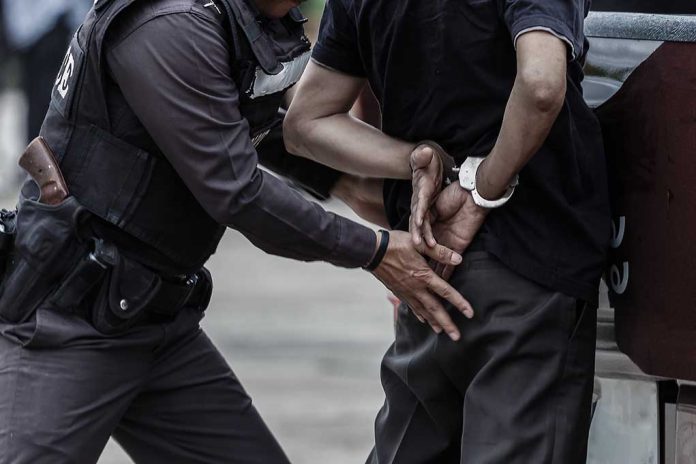
Polk County Sheriff’s Office recently apprehended members of the Tren de Aragua gang associated with significant liquor store thefts.
Key Takeaways
- Five Tren de Aragua gang members or associates arrested in Florida, linked to liquor store burglaries.
- Suspects charged with first-degree felonies and racketeering due to immigration status.
- Gang’s activities prompt calls for expedited deportation under the Trump administration’s policies.
- Franklin Jimenez-Bracho, a known gang member, was also arrested under Interpol’s notice.
- The operation highlights complexities of addressing international gang influences in the U.S.
Arrests and Charges
Franklin Jimenez-Bracho, linked to the Tren de Aragua gang, was arrested in Osceola County, Florida. His capture follows a series of liquor store break-ins across Central Florida, with federal and local law enforcement agencies reporting damages of well over $30,000. All five suspects, including two confirmed gang members, face first-degree felony charges, in addition to charges under Florida’s recently enacted immigration laws.
In a failed attempt to steal $3,200 in high-end spirits this March, their actions brought focused attention to the growing threat of Tren de Aragua’s influence. These developments have placed pressure on federal agencies to hasten deportation procedures, which have already led to significant numbers deported to El Salvador and elsewhere, despite legal and human rights concerns raised by civil liberties organizations.
MUST WATCH: Polk County Sheriff Grady Judd puts illegal immigrant and Venezuelan Tren de Aragua gangbanger on blast after the man broke down and started crying like a baby after being arrested for robbing more than three dozen liquor stores across central Florida. “At one point… pic.twitter.com/xIkKvrcmhG
— RedWave Press (@RedWave_Press) April 20, 2025
Federal and Local Response
In response to the criminal activities by the gang, local officials in Polk County have made clear requests to the Trump administration for federal aid in deporting the detainees. “These are some of the TdA gang members detained in Texas that we are trying to deport,” said a senior Trump administration official, emphasizing the perceived threat these individuals pose to American safety and the integrity of the immigration system.
Leveraging the Alien Enemies Act, the administration aims to remove noncitizens expediently, yet this tactic is underscored by legal challenges questioning the legality of these deportations during peacetime, raising significant debates about the rights of the accused. While the Trump administration continues its robust immigration stance, the Supreme Court has issued stays on some deportation activities, underscoring the tension between executive actions and judicial oversight.
Wider Implications and Concerns
The implications of this case resonate beyond Florida, highlighting the challenges faced by communities caught in the struggle between immigration enforcement and human rights. As law enforcement agencies grapple with methods to identify gang members, critics argue these practices often rely on superficial measures and can unfairly target innocent individuals. The Tren de Aragua, originating from Venezuela’s tumultuous conditions, exemplifies how international strife bleeds into U.S. borders.
This critical juncture calls for cohesive federal strategies that neither compromise public safety nor erode the constitutional rights intrinsic to the American judicial system. It’s a complex balancing act, one that policymakers and citizens will continue to debate as the story unfolds, reflecting the broader discourse on immigration and public safety.


